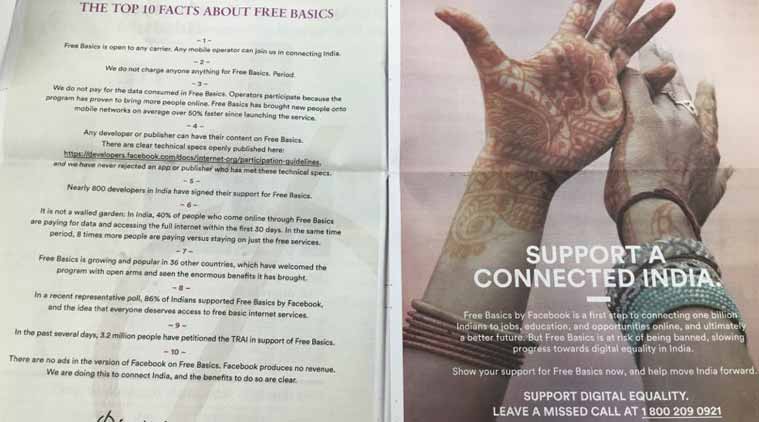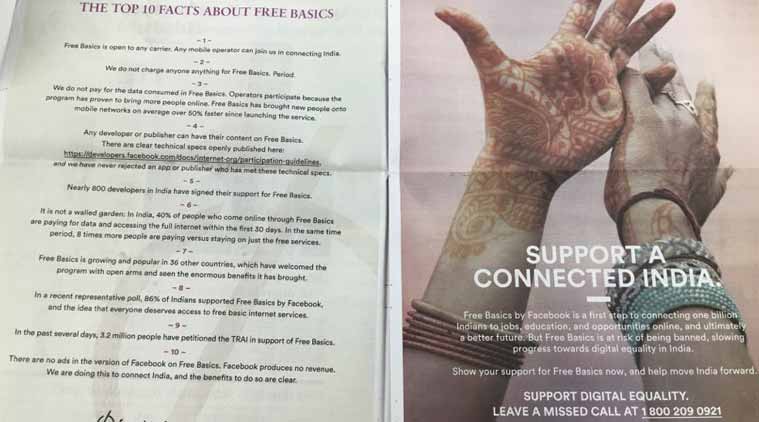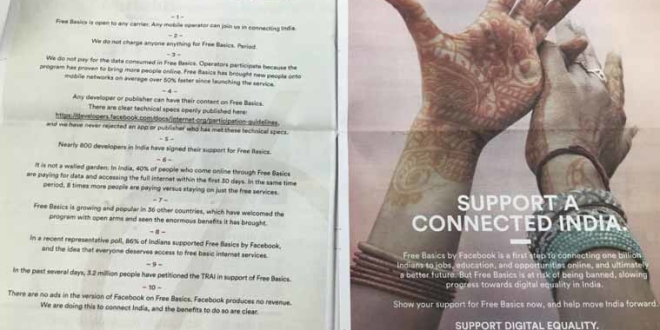
 That a lack of internet access widens inequality and limits opportunity is an increasingly accepted notion, and a scheme that purports to narrow, if not bridge, the digital divide is likely to resonate.
That a lack of internet access widens inequality and limits opportunity is an increasingly accepted notion, and a scheme that purports to narrow, if not bridge, the digital divide is likely to resonate.
This summer saw a full-throated battle over a notional toss-up between two goals: Network neutrality — the principle that internet service providers must treat all data on their networks equally — and access for those who cannot afford it, a battle that net neutrality advocates appeared to have fortunately won. But Facebook, having changed the nomenclature of its platform from Internet.org to Free Basics, has made a renewed push in recent weeks to persuade the telecom regulator, Trai, to frame net neutrality rules in a way that would allow mobile carriers to exempt certain applications from counting towards data usage. It has launched a massive publicity campaign that appeals to connected Indians to petition Trai to save Free Basics — arguing that the platform would bring those people online who find the cost of using mobile data prohibitively expensive.
In a country where the growth of fixed internet infrastructure has stalled and hundreds of millions remain offline, this is a persuasive argument. That a lack of internet access widens inequality and limits opportunity is an increasingly accepted notion, and a scheme that purports to narrow, if not bridge, the digital divide is likely to resonate. Yet, creating gatekeeping systems — which a programme like Facebook’s does, even if it claims all developers can be part of it as long as they meet certain criteria — has material consequences for how people perceive and experience the internet. The “free” in Free Basics, for instance, is subject entirely to Facebook’s, and its mobile operator partners’, discretion.
The free-wheeling innovation so central to the spectacular growth of the internet was made possible in no small part by its openness and level playing field, which allowed once-upstarts like Google and Facebook to topple giants. With smartphones and tablets becoming the default gateways to the Web for more and more people, the design of telecom policy is crucial to ensuring India doesn’t become home to a stratified, uncompetitive internet.
![]()
Source: New feed






